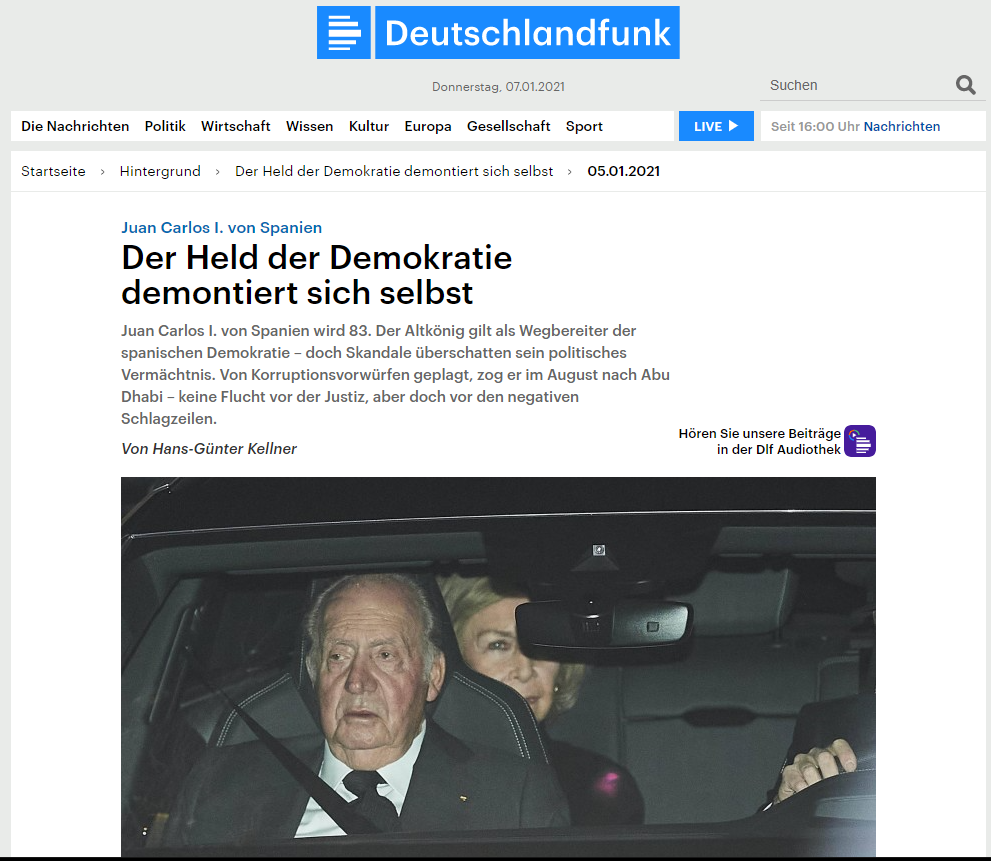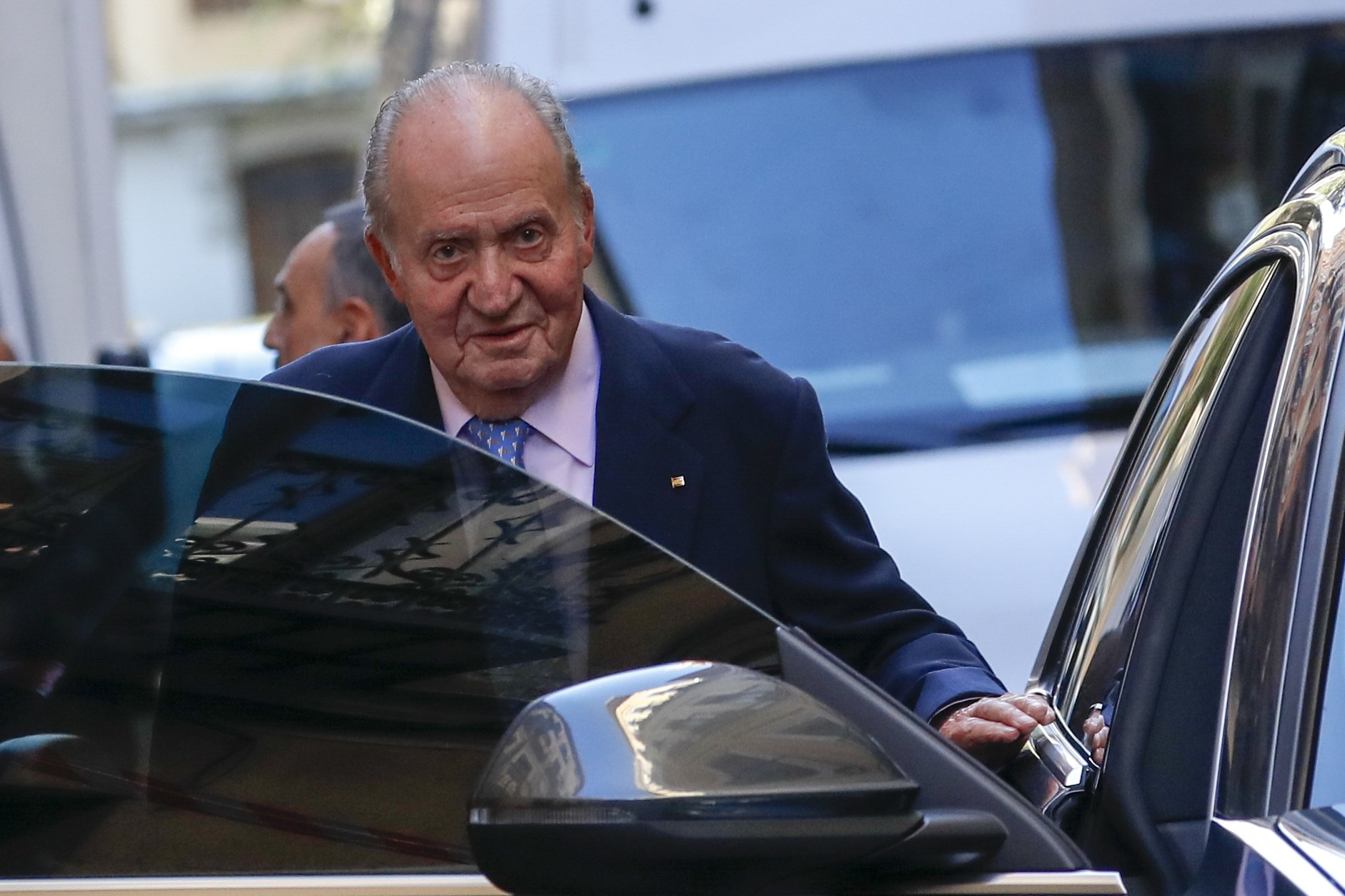German public radio broadcaster Deutschlandfunk has made a critical examination of the life of Spain's Juan Carlos I and defined him as a monarch who has "self-destructed". The station addresses the bewildering phenomenon of how someone who was considered a "hero of democracy" could have ended up as he is now, discredited and having fled to the United Arab Emirates.
"Juan Carlos I of Spain is 83 years old. The king emeritus is regarded as a pioneer of Spanish democracy, but scandals darken his political legacy. Up to his neck in corruption accusations, he moved to Abu Dhabi in August, not to escape justice, but rather, the negative headlines," the radio station narrates (link in German).
The broadcaster reviews Juan Carlos's childhood and the agreement made so that he would be brought up under the watchful eye of Spanish dictator Franco, and it quotes historian Paul Preston on the monarch's initial contribution to Spanish democracy in the country's pacts of 1978: "Juan Carlos lived [his childhood] in Spain as a prisoner of Franco," according to Preston, portraying the young future king as "sad", a reluctant part of the dictator's circle.
According to Deutschlandfunk, the apogee of Juan Carlos I's public life was reached with his televised speech after the military coup attempt of February 23rd, 1981. "By this action, the coup attempt was defeated. Even for skeptics, Juan Carlos became a pioneer of democracy, by intervening when it was in danger," says the radio network.
However, as the station explains, once democracy was considered to have become consolidated, the focus on the Spanish monarchy began to look at its private affairs and there the headaches began. It all started with the legal problems of Juan Carlos's son-in-law, Iñaki Urdangarin. The broadcaster recalls what Juan Carlos I said at the time: "We need to be rigorous, serious and exemplary in every way. All of us, especially people with public responsibilities, have a duty to observe appropriate behaviour, exemplary behaviour. Fortunately, we live in a state under rule of law, and any action deserving censure must be punished according to the law. Justice is the same for all," said the then-king, in a message which can now be read in a different light.

"The hero of democracy self-destructs," headlines Deutschlandfunk
Deutschlandfunk recalls that shortly after that, the ill-fated elephant hunt in Botswana took place, and the identity of the king's mistress, Corinna zu Sayn-Wittgenstein, became public knowledge. Events moved quickly and Juan Carlos ended up intoning his three-sentence apology: "I'm sorry, I made a mistake, it won't happen again" with the tone of "a schoolboy caught in the act". From there, his downhill route like a toboggan.
"On June 2nd, 2014, Juan Carlos abdicated in favour of his son Felipe. The long round of applause he was given would be the last recognition of the services of the king emeritus to the country. Because it was shown that Botswana was not his only false step," narrates the broadcaster, referring to the illegal commissions he allegedly received from several Arab states.
"The abdication of the king emeritus has placed Spain in one of its deepest crises since the death of dictator Francisco Franco," concludes the German station.

